Don't wanna be here? Send us removal request.
Text
I also did not understand how Light wanted to eliminate criminals, but HE himself became one. He tries so hard to fit this agenda of ridding the world of rot and scum, yet he is committing crime by murdering others.
Death Note Analysis
This has always been one of my favorite anime's as well as one of my first in like 1st grade. I thorughly enjoyed rewatching this anime. It is interesting how the last few works such as Sensoron, Akira, Full Metal Alchemist Brotherhood, and now Death Note have all been built on is idea of power as well as morality. Inittially, Light Yagami represents going through the mundanity of life as a high school student he says "day in and day out the same thing over and over again." Yet, he still has ideals that the world is rotten even before recieving the death note. He quickly adapts ideals that say "if one or two people like him were going to die no one would care." He goes from killing someone holding hostages, to someone harassing a girl, to random people for his own agenda (the 12 agents he kills). Light is a person who seems to never be satisfied. Even while recieving the best grades, with a supportive mom who asks him if he wants anything, he responds he doesn't want anything at all. Which I find to be interesting as he gets no enjoyment it seems from anything else besides killing people with the death note. We see the joy he recieves from the death note and ridding the world of "rot" as he alreay has 2 pages filled of names before Ryuk even comes down into the human world. His intention is to create a world without eveil by doing something thats objectively evil in the eyes of society, murder. It creates an ethical question of whether murder is valid when it has to do with people who are not morally ethical in society throguh their crimes. Light thought he was chosen to be this "god of the new world" because he was smart, but it was simply based off of luck that Ryuk dropped the notebook there. He has a god complex and says "someone has to do it, In fact only i can do it" he believes he's truly a god of this new world he is trying to rid of "evil." Yet, this world is already tainted because he himself is commiting acts of evil in the process. This anime also deals with the ethical issue of the true intentions and feelings behind society. Light states that "of course humans would say it's wrong because they must put up a front like that in public. But their true feelings are there." If this happened in real life, I wonder how many people would support Kira's agenda as both kira and L both believe they're this idea of "justice" and "judgement" but in different ways. As mentioned before, the act of the death note dropping in the human world to Light Yagami is simply an act of luck. Yet, Watari and L both think if Kira was an ordinary person who gained the power to kill, he is very unlucky. The idea of luck is constant throughout the series it seems.

4 notes
·
View notes
Text
I found it funny that Mitsuah always wanted to live as a Tokyo teenage boy, and she was even able to experience that, escaping from her reality and dreaming of another. I also feel like Taki is fighting to remember, and even when they meet again, there is a sense of familiarity between them that really shows, and that also relates to power and resistance.
Your Name
Your Name is a movie about two people who swap lives, but it’s also about how people are shaped by things they can’t always control. When reading Foucault’s History of Sexuality, it’s clear that power isn’t always something big like a government or a rule. Power shows up in everyday life, in small moments and choices. In Your Name, power looks like time, memory, and the feeling of longing. These things push Taki and Mitsuha together, even though they don’t know why.
Foucault says that where there’s power, there’s also resistance. In the movie, Taki and Mitsuha don’t just accept their situation. They fight to remember each other. Even when their memories start to fade, they don’t give up. This is resistance — trying to hold onto something important, even when it feels impossible. It shows that power and resistance are always connected, and they can both exist at the same time.
The movie also shows how personal dreams and traditions clash. Mitsuha wants to escape her small town and live in the city. This is her way of pushing back against the quiet pressure of family expectations. Foucault talks about how power isn’t just in big systems but also in the small details of daily life, like family traditions and routines.
In the end, Your Name shows how people are pulled by different forces, but they still find ways to make choices and connect with each other. Even when life feels out of control, there’s always hope.

Picture from: https://web.intonaija.com/netnaija/movie/your-name
1 note
·
View note
Text
Relating this to south park was really interesting and I can honestly see it. In my opinion the show uses a lot of satire to get the joke across and I feel like because of that is why its not really problematic.
Hetalia Axis Powers (Ep. 1-19)

So this is definitely one of those shows where I can't exactly bring myself to say its too much more than satirical parody. Honestly I'm just familiar with this sort of concept so I can't see it as much more than it is, but if we look at this from the perspective of someone who hasn't seen stuff like this before...
It does have an emphasis on characters over plot, tangential to the ideas presented in Database Animals. However in this case that's because they're going for comedy, so I don't think it is as significant. It's like pointing out that a comedian's jokes don't have a plot.

There's also the hilarious combination of personified nations, parodying elements in history and overdramatizing languages, which I've seen in shows like Camp Camp or South Park. It's a fairly fun way to create comedy but also invoke parody/satire without specifically saying it. (If you have seen any shows that reflect reality, they'll have disclaimer to avoid defamation.)
Overall this is a very funny show! I'll probably end up watching the whole thing to see the silliness ensue.
4 notes
·
View notes
Text
I completely agree with this. I also feel like the story does not follow the path of victory but instead cyle almost. I also feel like its also about the bond between people and their creations.
Xenoblade Chronicles 2
I just played this game recently, and I am so surprised we will watch the plots of this game. This game’s story begins in a world shaped by loss. The land of Alrest floats across a sea of clouds, where humans survive on the backs of massive Titans that continue to age and collapse. These Titans are not only carriers of life but also reminders that the world is slowly coming to an end. People cling to hope. They search for a myth called Elysium. Most do not know what Elysium truly is. They only believe that something better waits beyond the ruins.
Rex, the main character, begins with a simple dream. He wants to help others. He does not seek war or power. He finds Pyra, a Blade who awakens from a long sleep. She carries a power from the past. She also carries another self, Mythra, who remembers more of the truth. Together, they search for a place that might not exist. Their journey brings them into conflict with nations, weapons, and people who fear what Pyra and Mythra represent. They are not just symbols of strength. They are symbols of everything the world has forgotten.
This story does not follow the path of victory. It shows how the desire to control leads to collapse. The Titans continue to fade. The people continue to fight. The Blades continue to be treated as tools. The cycle repeats. Cobb’s reading about the Anthropocene helps explain why. He describes a world where humans separated themselves from nature. They replaced care with conquest. They chased improvement but ignored the cost. This same pattern appears throughout the story. The characters reach for power. They try to fix what was broken by using the same force that caused the damage. The more they try to take, the more they lose.
Cobb believes that change requires something deeper. Not invention. Not domination. A shift in how people see the world. This story supports that idea. Nothing improves until the characters begin to see their role in the suffering. The answers do not come from forgotten science or legendary places. They come from accepting that the past cannot be undone. The future cannot be reached through denial. It can only begin through a new way of living.
The ending does not solve every problem. It offers no easy conclusion. The world remains uncertain. The people remain scarred. But there is something left to hold onto. A choice to rebuild. A choice to carry memory with honesty. A choice to live not by controlling the world but by respecting what remains. That is what gives this story its meaning. That is what lingers after the journey ends.
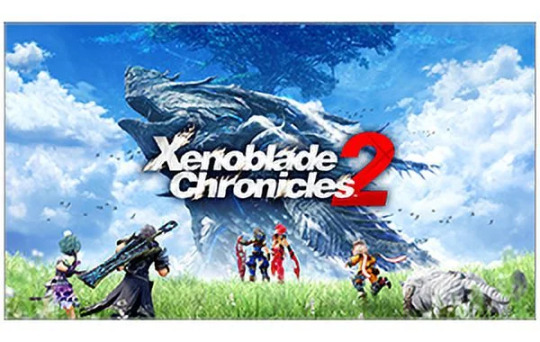
4 notes
·
View notes
Text
Akira
Akira is more than a landmark in anime—it’s a dense, chaotic exploration of power, rebellion, and existential transformation. At its core, the film critiques the fractured relationship between individuals and government institutions, exposing the consequences of unchecked authority and technological ambition. The corruption of the state in Akira—from concealing the truth about WWIII to conducting secret psychic experiments on children—mirrors real-world fears about governmental overreach and manipulation. As riots break out and terrorism surges, the film paints a grim but resonant portrait of what happens when people lose faith in their leaders.
Tetsuo's transformation from powerless teenager to a destructive godlike figure embodies the instability of control. His journey is both tragic and terrifying, symbolizing what happens when power is obtained without understanding or responsibility. The grotesque climax—his body mutating uncontrollably—is not just horror for horror’s sake. It’s a metaphor for the dangers of technological experimentation gone too far, where the very systems designed to create control instead unleash chaos.
What makes Akira especially compelling is its ambiguous ending. Unlike the manga, where Tetsuo is destroyed, the anime presents a more optimistic view—his transcendence with Akira and the Espers suggests the possibility of rebirth, a cosmic reset of sorts. This contrast highlights a central tension in the story: Can destruction lead to renewal, or is it merely the final result of rebellion gone awry?
Moreover, comparisons with Neon Genesis Evangelion strengthen Akira's themes. Both Tetsuo and Shinji suffer bodily and psychological collapse at the hands of institutions that exploit youth. Their narratives ask: what does it mean to grow up in a broken world? Akira doesn’t offer easy answers, but its lasting impact lies in its willingness to confront these questions through surreal, explosive, and deeply human storytelling.

0 notes
Text
Sensōron
Kobayashi Hideo's "Sensōron" ("On War") and Ernest Gellner's "A Short History of Mankind" explore nationalism, identity, and the history of war from different perspectives. "Sensōron" offers a different view on Japan's wartime actions, especially in Nanking, suggesting that the United States exaggerated these events, influencing Japanese people's beliefs for many years. While trying to expose how propaganda works, the manga itself becomes a piece of propaganda, making strong claims with weak arguments to show Japan as an unfairly treated victim. It portrays postwar Japanese people as easily influenced, while positioning the author as a wise figure who discovered the truth through the insights of older generations. This approach makes readers feel intelligent for questioning widely accepted narratives. Gellner’s book provides valuable context. He argues that nations are not naturally existing entities but are constructed through shared stories and selective histories, which is what "Sensōron" does. The manga's effort to revive a pure Japanese identity, supposedly changed by Western influence, aligns with Gellner's idea that nationalism often relies on creating an idealized past. Kobayashi discusses the repeating cycle of war and its emotional impact, while Gellner focuses on how modernization turned war into something centered on ideas and industry. Both writers agree that war is deeply tied to forming identities, but Gellner critiques the process of creating myths, whereas "Sensōron" accepts it. Gellner also warns that technological progress has increased the scale of violence, a concern that "Sensōron" subtly addresses by expressing anxiety over changes in Japanese society. Ultimately, the manga acts more as a nationalist story than a genuine historical account, using emotional arguments and revisionist views to build a proud but misleading cultural image. Together, these texts show how narratives about war can either challenge or support dangerous forms of collective memory.

0 notes
Text
Full Metal Alchemist
Fullmetal Alchemist Brotherhood was one of my first anime and is honestly still one that's very close to my heart. I first started watching Full Metal Alchemist with my older brother and it was really the only anime that we watched together and kind of bonded over so that's why I really was a special place and the overall theme and core meaning of the movie is also very powerful. For example, when they touch on the laws of Equivalent Exchange as well as the seven deadly sins and what they plan to Human Nature, I feel it could really be reflected in real life and even today's society. To start off a really introduce to the brothers and kind of see the immediate effects of what Alchemy can have, We see the price they had to pay for what they were trying to gain using Alchemy. Later on into the show really see how War can really affect the lives of others and different aspects show both sides of the story. I feel like with Scar and Winry, this is a great example to really show how both of them are really victims of the war. Furthermore, I feel like you can really see how this war was a play for economic gains. That being with the creation of the homunculus Stone. Furthermore always felt like the war kind of referenced Middle Eastern Wars and our Society. especially with representation of terrorism and refugees. Overall I feel like this anime really did cover a lot that we went in class when it came to society and War but also capital and Grand narrative. I feel like characters like Roy Edward Shou and Scar are present in different aspects of human nature. And ultimately, I feel like a lot of it really shows how it's important to be content with what you have and not always look for more.

2 notes
·
View notes
Text
Your name
Your name is one of my favorite anime movies, and honestly, one of my comfort shows. I feel like this movie really represents how people’s lives are connected and they can cross paths as well as how they can impact the lives of others. The article studies how discourses shape subjectivity, truth, and the boundaries of what’s considered “normal” or “rational.” Foucault believed our sense of self is shaped by the discourses we’re part of, not just internal feelings. In Your Name, Mitsuha and Taki literally swap bodies, experiencing life through another’s eyes and social context. Foucault looks at how things change over time across societies, and I feel like this can reflect how this story takes place in two different points in time and place. I feel like when Mitsuha goes swaps and lands in Tokyo, her identity shifts, not just because it’s Taki’s life, but because of the change in environment. She further learns to perform or do the gender of a Tokyo teenage boy. While the same is true for Taki when he’s in Itamori, he performs the role of a teenage girl living in a rural town. The biggest examples of this are that Mitsuha has to go to work for Taki, and Taki has to go to the shrine in the mountain. Ironically enough, Mitsuha’s grandmother then realizes that she is dreaming. Overall, when it came to your name it was a really touching movie and almost inspirational. I feel like it had a lot of parallel meanings and symbolism that could really be seen through the imagery used in the movie. the biggest one is the meaning of the thread the red thread. The thread symbolizes how time is intertwined and how people's lives are also intertwined. I feel like that red thread really shows how time isn't always linear and how people's times and paths can cross.
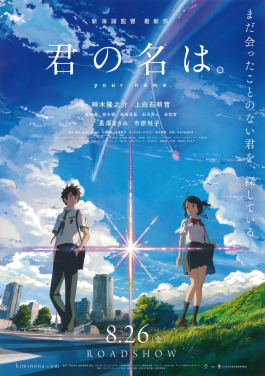
0 notes
Text
Hetalia Axis Powers
This anime was very interesting to me, and I honestly couldn’t really take it seriously. I feel like this is almost a satire presentation. It plays off of a lot of stereotypes a lot of countries have. I feel like it was almost a shock when I watched it, to be honest. The way they represented MoA elements in characters such as Germany was really weird to me in the sense that this anime really does take place in World War 2. I feel like it also it makes a joke out of a lot from World War two. These episodes arguably perpetuate harmful stereotypes, but I don’t feel like it’s necessarily being reinforced, but more so made fun of. Like how America loves hamburgers, I feel like that is how a lot of other countries see America, and even has a reason for such with the high level of obesity in the country. The relationship between a lot of the countries is either romantically inclined or formed in a sense of siblinghood. I feel like a lot of these characters show how they felt superior to one another in a sense where they were trying to save each other from one another. I personally don’t have a problem with this anime but i definitely do see how people could take up an issue with it. Overall, this was really fun to watch and I do know if its something to be taken seriously or in what sense. All in al,l this anime really shows how other countries can make harmful and even perpetuate stereotypes about each other or even just how a country might perceive another country. This take on global stereotypes through anime highlights cultural humor, but also risks misunderstanding history and reinforcing national caricatures unintentionally.
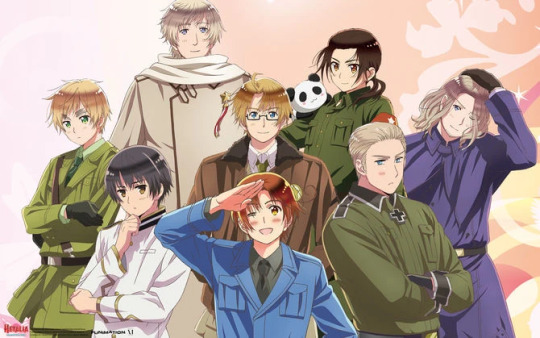
0 notes
Text
Xenoblade chronicles 2
The world of Alrest is made up of these giant living Titans. But the Titans are dying and into the Cloud Sea, fading away and no one knows how to stop it. Just ecosystems breaking down, one piece at a time. Cobb talks about how humans live beyond natural limits because we don’t adapt to the environment, we try to remake it. That’s exactly what happened in XC2: the original Earth was destroyed, so one man tried to create a new world from scratch.But even this “second chance” world ends up falling into the same trap. The Titans are dying, resources are running out, nations are fighting for what’s left. The idea seems to be that even if you remake the world, the same destructive patterns will show up again unless the mindset changes. That can be compared to today because even though we try things such as electric cars, plastic straws etc, they can just be tasks that become normalized and we don’t think about why we’re doing them. We don't realize the effect of our actions and our mindsets dont change, they just become like a routine. The Blades are another piece of that. They’re living beings but people treat them just like objects. Some characters bond with their Blades and others use them. This reflects how we treat the natural world. Then Elysium, the paradise in the sky everyone’s trying to reach but it just seems like an escape fantasy. Cobb writes about how we put our faith in heroic science or space travel instead of fixing the world we already have. Elysium becomes that kind of unreachable solution. Surprisingly these cut scenes weren’t all that bad to watch and made me interested in the game. It was a nice contrast and similarity to the plot that Nausicaa had going on.

2 notes
·
View notes
Text
I also really enjoyed this show and I agree with the different aspects that shinji and his dad represent when it comes to masculinity. I feel like the contrast in character really goes to develop their dynamic with each other and even other characters in the show.
Neon Genesis (ep. 1,2,4,5)
I love this series so much. Despite how confusing and all-over-the-place it feels, Neon Gen holds a very special place in my heart. Something about the animation style, character dynamics, and broad storyline makes this weirdly fun to watch. Now, watching this show alongside Connell and Heasley’s works, it definitely feels like there is a “more meaningful” development within this story.
Starting off, Connell and Heasley both discuss masculinity as a diverse topic, rather than as a fixed trait. I feel like the foundation of these two works are very important within the topic of gender studies. After all, it always seems like there is a larger fixation on conversations surrounding women and LGBTQ+ as a whole, but much less about men or concepts of masculinity. I find this especially interesting because, as discussed by both Connell and Heasley, varying forms of masculinity seem to be extremely notable in everyday life.
Considering the many different characters within Neon Gen, I would say that Shinji and Gendo represent the most recognizable forms of masculinity. Following Connell’s model, Gendo is very clearly an example of Hegemonic Masculinity. Gendo is very emotionally reserved, even toward his son, and his priority is always work and being a dominant figure. On the other hand, Shinji seems to exemplify more subordinate or queer masculinity. Shinji is fearful, wants to avoid fighting/violence, and seeks to escape the position he has been placed into. It is so interesting to watch as Shinji, whose entire world is now centered around protecting everyone from angels, wants nothing more than to be set free from this burden. I feel like this is a stark contrast to typical male protagonists, who tend to be more battle-ready and hard headed.
Although the readings focused on masculinity, I also wanted to briefly mention the types of femininity we see in these episodes. Most notably, our main female characters are Rei and Misato. Despite how different their characters are, they seem to have relatively similar “versions” of femininity. Both of these women follow a more submissive role and work for the dominating Gendo. We see how both characters, specifically Rei, are focused on following orders and obeying the guidelines that have been laid before them. Anyways, I just found that kind of interesting.
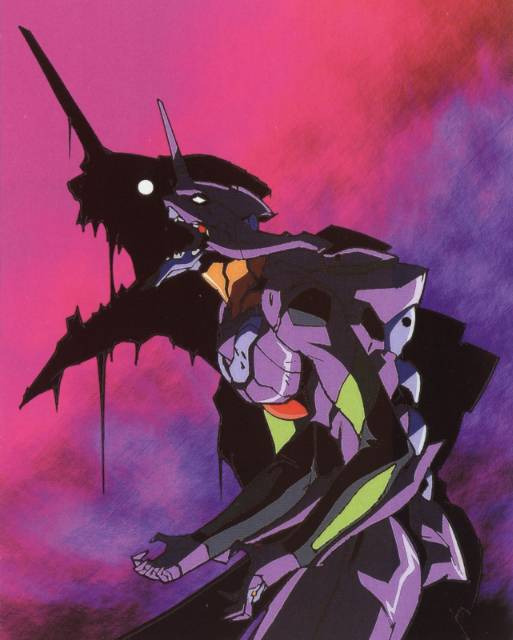
4 notes
·
View notes
Text
The ending of this movie was really crazy to me, especially with how they showed the people in the theatre. But I also agree that Shinji is lowkey experiencing toxic masculinity in the ways he projects his emotions onto women.
End of evangelion

I think that this ending for evangelion was much more direct in the final morals it wanted to hit. I think that Shinji more directly struggles with the reprecussions of him trying to adopt hegemonic masculinity. Everyone tries to force him into hegemonic masculinity so that he will be stronger and braver and able to pilot the evangelion. His fragile emotions still persist though as he tries to adopt this, but he also adopts the objectification of women that comes with hegemonic masculinity as well. When Shinji masturbates at just the sight of Asuka's boobs when she's in a vegetative state, he regrets it immensly. He fully understands how obscene and violating it is towards Asuka. This contradiction of both the need for bravery from hegemonic masculinity and the vilation and damage Shinji faces in enacting and recieving sexual bewhaviors with or towards women repeats. Misato tries to use sexual favors as a way to push and motivate Shinji towards bravery and action in a disgusting pedophilic kiss. It doesn't work towards Shinji as he immediately breaks down and cries, as well as later in the movie (ill explain in later paragraph). All of these culminate into an abstract scene where all the voices of rei, asuka, and misato berate Shinji for objectifying and violating them. This is the movie creators way of displaying the internal guilt and turmoil Shinji feels from enacting the sexual portions of hegemonic masculinity. In this way, they say that the inherent nature of hegemonic masculinity is wrong. Conformation, like the goal of the instrumentality project, is wrong because it forces poeple into the patriarchal roles that hurt women and force men to block out emotion. In the end, Shinji tries strangling Asuka because he wants to escape the conflicting need for affection and guilt and turmoil he feels from his sexual feelings towards women. In this way, hegemonic masculinity forces men to express them selves in unhealthy ways that lead to internal damage and external damage.
2 notes
·
View notes
Text
I do agree that Shinji was held under immense pressure and also exposed to a lot of traumatic events both psychologically and physically which is why I personally say I understand why he kept trying to run away and a lot of this anime really does shadow mental health in a lot of the characters.
Neon Genesis Evangelion - Episodes 8, 16, 24, and 26
Once again watching NGE has been so much fun. It reminds me of my childhood a lot, and even with all of the different stuff going on, it still remains to be a very enjoyable time for our required viewings. That being said, it was weird to skip around in the anime, and it made me feel very disjointed. I understand the purpose of moving around and not directly watching it linearly as we do not have the time, but still it makes it a lot harder to pull apart the aspects of the show. With that being said, I tried to focus my view much more on masculinity and off of the discussion we had on Friday. That led me to view the conflicts Shinji was having in a different light.
Everything to which Shinji was facing could be boiled down to the differences in expectations, reality, and personality which were present for his character. He was held to near impossible standards, with barebone support, and was a much more meek individual than his father wanted him to be. We saw this in the previous viewings, but it is especially important to note, as it shows a conflict at the barest level. This intersection means that no matter what else is going on within the show, Shinji will consistently have the internal struggle along with an external one. It is important to note, and it is viewable within this anime that issues do not simply just go away. The characters actively have to work against them. So, these internal issues that Shinji is struggling with are going to be present no matter what. The connection this holds to masculinity, is that off of the terms to which we have been reading, masculinity is a performance played. Thus, him failing to put on this performance, will help to define the entirety of his character. On top of this, it shows that the bounds of what is going on, do not simply classify as interpersonal, intrapersonal, or environmental. It is all meshing throughout the entirety of the anime.
Finally, I would like to make a quick note off of the importance of self acceptance. This is something to which these episodes really show, as Shinji comes more into himself, and other characters follow their charted paths a lot more. Overall, it is really fascinating to get to watch play out.

2 notes
·
View notes
Text
i definitely agree that this ending was very disturbing. I feel like it also goes to show you the state of shinji's mental health as well as the other characters. The choice to be one instead of an individual really does show what shinji values but also fears to lose.
The End of Evangelion - Yeah... it's Disturbing
The anime film "The End of Evangelion," directed by Hideaki Anno, is notorious for its questionable narrative and disturbing themes, earning it a reputation as one of the most challenging and psychologically intense experiences in the medium. Essentially, I’m saying this anime is messed up and hard to understand. This movie serves as an alternate ending to the acclaimed television series "Neon Genesis Evangelion," plunging viewers into a surreal exploration of trauma, identity, and existential dread.
From the outset, the film's striking imagery and disjointed storytelling set a tone that can only be described as nightmarish. The visual representation of human instrumentality—where individuals merge into a collective consciousness—evokes feelings of disturbia and horror. For instance, when Shinji Ikari, the protagonist, is confronted with the choice between a painful individuality and a blissful, yet hollow, unity, it illustrates the depths of his internal struggle. We are then introduced to the flaws in his character and thinking through the infamous hospital scene.
The movie's unflinching portrayal of mental health struggles and disturbing character themes is unsettling. Characters confront deep-seated traumas, such as Asuka’s complete breakdown during the climactic battle sequence. As Shinji's internal conflict intensifies, he is ultimately faced with the harrowing sight of Asuka, who lies defeated and vulnerable, embodying the film's exploration of despair. The infamous scene where Shinji's psyche unravels, leading to various surreal sequences of introspection and self-loathing, invites audiences to reflect on their own fears and vulnerabilities.
Furthermore, the movie’s ambiguous ending leaves viewers grappling with its implications. The final scenes depict a world stripped of its reality, culminating in a haunting exchange between Shinji and Asuka that encapsulates a cycle of pain and longing. The line “You’re pathetic”from Asuka to Shinji can be seen as a collapse of their relationship and a fallout of the main plot of the anime, the unification of humanity.
In conclusion, "The End of Evangelion" is undeniably a profound and often disturbing exploration of the human psyche. Its heavy themes, combined with a ruthless narrative style, create an experience that lingers long after the credits roll, forcing viewers to confront uncomfortable truths about themselves and the world they inhabit, and more often than not dissuade casual viewers from watching it again.
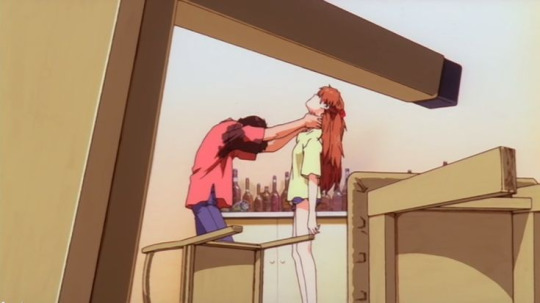
1 note
·
View note
Text
If you loved this movie I definitely think you would love Princess Mononoke. the message in these movies are very powerful and I feel like it kinda represents a post world War 2 type of setting and scene.
Nausicaä of the Valley of the Wind
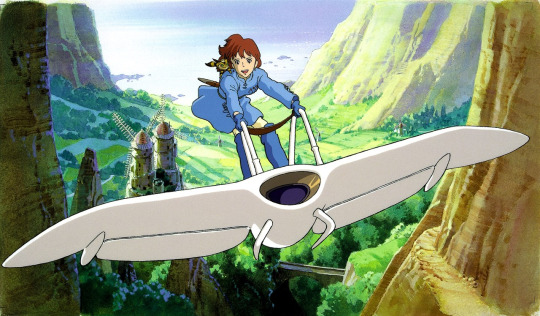
Hey everyone! 🌟
I just watched Nausicaä of the Valley of the Wind and I’m honestly kind of speechless. It’s an animated film from the ‘80s by Hayao Miyazaki, but it feels like it was made for right now. The movie is set in a post-apocalyptic world where toxic forests have taken over and giant insects rule. Humanity is barely holding on, and most people fear nature, except Nausicaä. She’s a princess who glides through the skies, talks to insects, and fights for peace.
Environmentalism and Nature's Value
The way the movie talks about nature is super powerful. At first, the toxic jungle seems terrifying, but then we learn it’s actually cleaning the earth from pollution left by humans. That twist hit me hard. Nausicaä realizes that nature isn’t our enemy, it’s doing its best to heal itself. Instead of destroying it, she wants to understand it. Watching this really made me reflect on how we treat the planet today. We’re always trying to control nature instead of listening to it.
Anti-War and Pacifism
The anti-war message in this movie is also really strong. There’s conflict and destruction everywhere, but Nausicaä constantly chooses peace, even when it puts her life in danger. She doesn’t fight back with weapons, but she leads with compassion and empathy. One scene where she protects a creature without fighting back actually gave me chills. It showed that real strength is about kindness, not violence.
Final Thoughts
Even though it’s animated and from decades ago, Nausicaä feels more real than most movies I’ve seen lately. It’s beautiful, emotional, and full of meaning. If you care about the planet, or just want to see a story about real courage, this one’s totally worth watching.
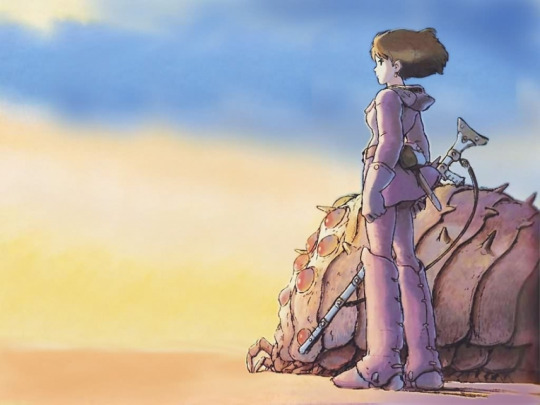
5 notes
·
View notes
Text
Nausicaa of the valley of wind
This movie was really cool and honestly reminded me a lot of Princess Mononoke and The Secret World of Arrietty. This is one of those movies that really show the effects of human conflict on the environment. This movie really can show you what a post-nuclear war can look like. As I watched it the giant insects reminded me of the disturbed spirits and the human war furthers the effects to the point where the world that's already destroyed is just being destroyed even more. I feel like a lot of this movie also parallels a lot of World War Two and the effects and aftermath of the war. Especially with the previous movies we watched. I feel like the Seven Days of Fire reflects the nuclear bombing and the holocaust through things such as genocide and the total annihilation of groups of people. You can also see how the two nations are fighting over resources and even land I feel like this can even be seen with current wars on continents such as Africa where many people are fighting over resources. The Valley of the Wind also represents an ideal model of what peace and sustainability look like. We see how they coexist and live with nature. Other countries really didn’t value this bond and they were willing to exploit nature and the insects to defeat one another. I also feel like the toxicity of the jungle reflects how places were affected by radiation. Acid rain turned lakes into dangerous areas and you can see this when she gets some on her it burns through her boots. Overall I feel like this movie really shows how conflicts as big wars can affect the innocent and people are willing to even sacrifice the innocent for their goals.

0 notes
Text
Swamp con
The Gator swamp was my first convention and honestly a great experience all together. Growing up I always wanted to dress up and go to an anime convention and although I wasn't able to dress up this was still a great opportunity. When preparing to go I realized I decided to wear an anime shirt to at least try to match the community. I wore a YuYu Hakusho T-shirt and I actually got compliments on it. I feel like me wearing that t-shirt was not just me expressing my fandom but also as soon as I entered the building I felt almost overwhelmed by a sense of community and a community I feel I don’t often see or get to be accustomed to. I feel like I was also able to see sub niche communities. I feel like sub communities that expressed different forms of identities and even masculinity. The first booth I visited was the Artistry sale. I feel like this was the first booth where I was able to see how shadow capital and fandom could become real art. A lot of people made different things like stickers, or even figures and had anime for a variety of genres. Some of the fan arts included Gojo posters that you could tell were fan made because of things like the facial expression and poses. The anime art I saw also verified from modern more popular anime like Jujitsu Kaisen to older shows like pokemon. I saw a lot of key chains as well and even these oni. I felt like this didn’t relate to a specific genre but more so a genre because I’ve seen different representations of Oni’s in different shows such as One Piece. I feel like in this first both I really saw how shadow capital could become real capital as they would sell these art pieces that they made themself based off anime and media and with the oni horns I feel like that was an even more niche form of it specific to a smaller group or fan base. People were able to make profit and maybe even a living off of shadow capital and fandoms and I feel like this also relates to how anime can be left up to the interpretation.I feel like the convention really gave space for shadow capital to show but also the niche community to come together and I felt like it's the only time you’ll see so many people gather and get to express their love and fandom.Some other very cool and interesting merch I saw was that people also crocheted merch to sell that was anime related. Furthermore, another huge aspect to the culture of convention was cosplay. I got to see many costumes and some characters were more popular than others. The first ones that stuck out to me were Deadpool and Hello kitty. I feel like this was a really funny joke because of the correlation they have and not a lot of people would understand. The only person he official Deadpool film Twitter account follows is deadpool, and it's really just a comedic.I also got the opportunity to see real life “idols” in real life and with that also meant different dances. I didn’t know the dances myself but I recognized them as idol pop dances and one of them was the Sunny Day Song. I also had the opportunity to do panels about Nintendo games. Overall I had a really great experience, there were other events at the convention that also correlated with things we learned about such as the maid cafe. I feel like it displayed a sense of queer masculinity but also in a scene where it was accepted and almost praised. And lastly my favorite part was definitely the runway show. I got to see multiple different cosplayers such as Jinx who was honestly really popular. Overall this was really fun and something I would love to come back next semester dressed as Zoro.
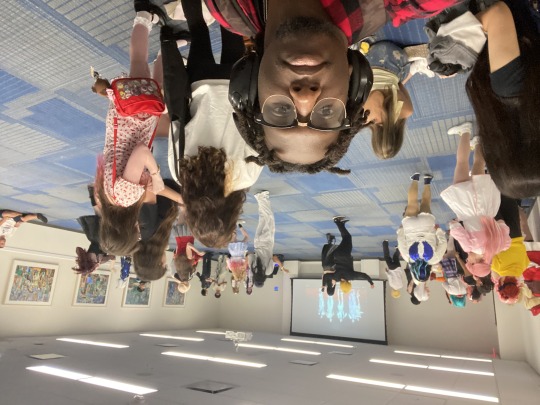
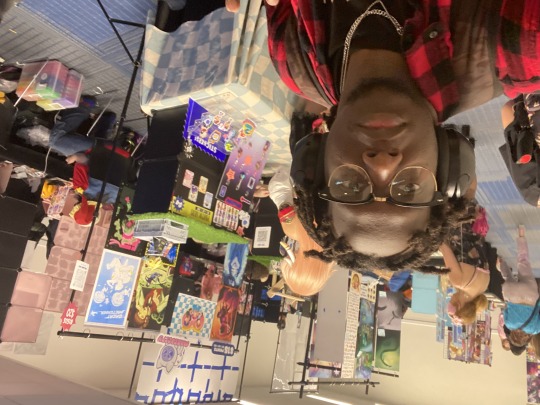
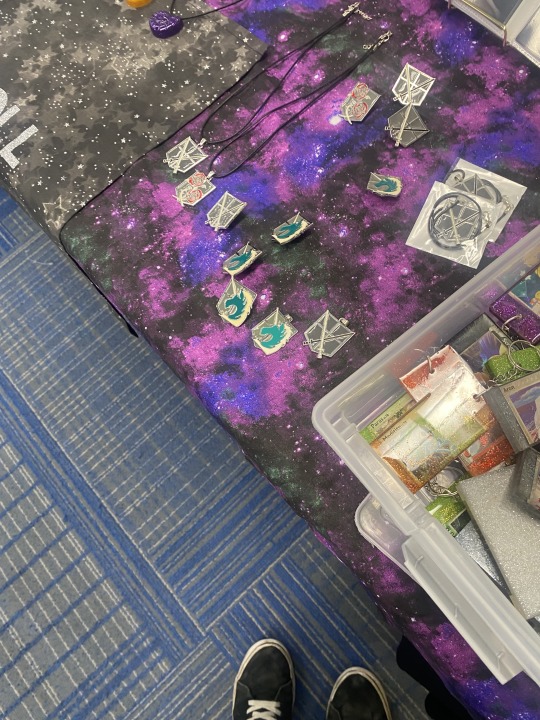
0 notes